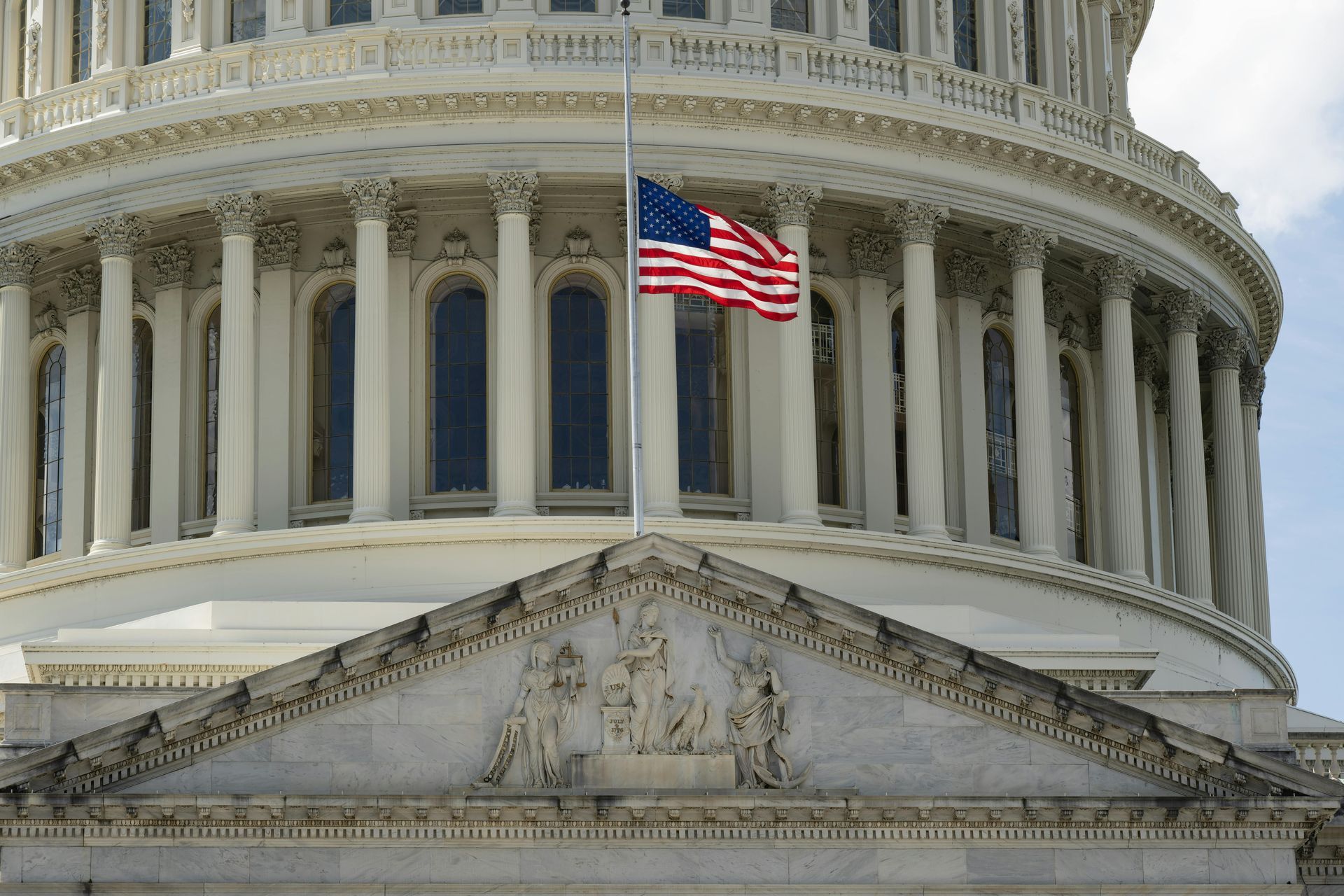Qui doit rédiger les lettres de recommandation pour mon visa O1B ?
April Perez • February 1, 2024
Click here to read this article in English
Si vous envisagez de déposer une demande de visa O1B
sur la base de vos capacités extraordinaires, vous devrez peut-être fournir des lettres de recommandation dans le cadre de votre demande.
Vous pouvez utiliser ces lettres pour répondre à différents besoins.
L'une des exigences spécifiques de l'O1B pour laquelle vous aurez certainement besoin de lettres est la suivante : La preuve que le bénéficiaire a reçu une reconnaissance significative pour ses réalisations de la part d'organisations, de critiques, d'agences gouvernementales ou d'autres experts reconnus dans le domaine dans lequel l'étranger est engagé. Ces témoignages doivent être présentés sous une forme qui indique clairement l'autorité, l'expertise et la connaissance de l'auteur en ce qui concerne les réalisations de l'étranger. Les lettres doivent émaner de personnes qui travaillent dans le même domaine et qui expliquent leur propre parcours et leurs réalisations dans ce domaine. Ces personnes doivent également connaître le travail du demandeur et être en mesure d'attester de ses réalisations dans le domaine spécifié. Les lettres émanant de personnes n'ayant pas d'expérience dans le même domaine que le candidat ne seront pas nécessairement utiles pour démontrer que le candidat possède des capacités extraordinaires dans un domaine spécifique.
Une autre exigence qui peut également utiliser des lettres comme preuve est l'exigence suivante : Le bénéficiaire a joué et jouera un rôle de premier plan, de vedette ou un rôle essentiel pour des organisations et des établissements qui jouissent d'une réputation distinguée, attestée par des articles dans des journaux, des revues spécialisées, des publications ou des témoignages. Les auteurs des lettres pour cette exigence doivent être des personnes occupant une position élevée au sein de l'organisation ou de l'établissement pour lequel le candidat a travaillé et ils doivent être en mesure d'attester de leur propre parcours et de leur titre, ainsi que du travail du candidat et de l'impact qu'il a eu sur l'ensemble de l'organisation ou de l'établissement. Outre les lettres, vous devez également fournir des éléments prouvant que l'organisation s'est distinguée. Il peut s'agir d'articles sur l'organisation et le travail du candidat pour l'organisation, ou d'articles traitant de la distinction de l'organisation.
Ce ne sont là que quelques-unes des conditions d'obtention du visa O1B pour lesquelles des lettres de référence peuvent être utilisées. Il ne suffit pas de remplir ces deux conditions pour obtenir le visa.
Si vous pensez pouvoir bénéficier de l'une de ces options, vous devriez contacter notre bureau.
Ce blog n'est pas destiné à fournir des conseils juridiques et rien ici ne doit être interprété comme établissant une relation avocat-client. Veuillez prendre rendez-vous avec un avocat spécialisé en droit de l'immigration avant d'agir sur la base de toute information lue ici.

The federal government entered a partial shutdown on January 31, 2026, after Congress failed to pass a final funding package. While this follows the record-breaking 43-day shutdown from last fall, this disruption is expected to be brief, with a House vote anticipated for the first week of February. However, as of February 2, several key departments are operating under shutdown contingencies. If you are an employer or a foreign national, here is what you need to know about how this affects your immigration matters: Impacts for Employers Certified LCAs: The Department of Labor (DOL) has suspended the processing of Labor Condition Applications. This means employers cannot currently obtain the certifications required to file new H-1B, H-1B1, or E-3 petitions. PERM and Prevailing Wages: Processing for PERM labor certifications and prevailing wage determinations has halted. This will likely cause a backlog once the government reopens. E-Verify: The E-Verify system is typically taken offline during a shutdown. Employers should continue to follow I-9 requirements but may be unable to resolve Tentative Nonconfirmations (TNCs) until the system is restored. Impacts for Employees and Families Consular Services: While U.S. embassies and consulates are fee-funded, their operations may be reduced. If you have an upcoming visa interview, check the specific consulate's website for status updates, as delays are possible. USCIS Operations: Because USCIS is primarily funded by application fees, it remains open. You should still attend scheduled interviews and biometrics appointments unless notified otherwise. CBP and Travel: U.S. Customs and Border Protection (CBP) functions are essential. Ports of entry remain open, though you may experience longer waiting times due to staffing adjustments. At Santos Lloyd, we are closely monitoring the situation as it unfolds. Whether you are an employer seeking guidance on how this shutdown impacts your hiring plans or an employee with general questions regarding if or how you may be affected, please reach out to our office. We remain dedicated to providing the updates and professional assistance necessary to help you navigate these disruptions.

U.S. Citizenship and Immigration Services (USCIS) has announced a major change to the H-1B cap selection process. Under a final rule issued on December 29, 2025, USCIS will replace the long-standing random H-1B lottery with a wage-weighted selection system that favors higher-paid and more complex positions. The rule is scheduled to take effect on February 27, 2026 , just ahead of the fiscal year 2027 H-1B cap registration season, unless delayed by legal challenges. If implemented, USCIS is expected to release additional guidance explaining how employers must submit registrations under the revised process. This change marks one of the most significant reforms to the H-1B program in recent years. Up until 2025, all registrations were treated equally once the annual cap was reached. Under the new system, selection odds will be tied to wage levels based on the U.S. Department of Labor’s Occupational Employment and Wage Statistics data. All H-1B registrations will still be placed into a single selection pool, but registrations tied to higher wage levels will receive multiple entries into that pool, increasing their likelihood of selection. Lower wage levels will receive fewer entries, making selection less likely but not impossible. H-1B wage levels are not determined solely by salary. Each wage level reflects the complexity of the job, the level of responsibility involved, and the education and experience required . Entry-level positions involving routine duties and close supervision are generally classified at the lowest wage level, while positions requiring independent judgment, advanced skills, and significant responsibility fall into higher wage levels. The highest wage level is reserved for roles that involve expert knowledge, strategic decision-making, and substantial leadership or technical authority. USCIS is expected to closely scrutinize selected petitions to ensure that the wage level claimed during registration is supported by the job duties and salary offered in the petition. Any discrepancies between the registration and the petition may result in requests for evidence, denials, or enforcement action. With the elimination of the purely random lottery, employers should begin preparing early by carefully evaluating job descriptions, wage levels, and overall H-1B strategy. Accurate classification and thoughtful planning will be essential under this new wage-based selection system. If you are an employer considering H-1B sponsorship, or a foreign professional wondering whether your position may qualify under the new wage-based system, consulting with experienced immigration counsel is more important than ever. Santos Lloyd Law is actively advising clients on H-1B cap registrations and strategy under the new rules. To discuss your options or determine whether you may qualify, contact our office to schedule a consultation.

During the recent administration there has been an increase in issuance of Requests for Evidence for EB-1A petitions for those of Extraordinary Ability. A Request for Evidence is a request that is made by USCIS that should explain how the evidence is deficient in proving the criteria argued and what additional evidence needs to be provided by the applicant to meet the criteria. EB-1A petitions are already normally subject to higher scrutiny because their approval is the first step needed to apply for Lawful Permanent Residence or a green card. USCIS normally requires not just evidence but that the evidence be provided with context and information to show why it matters in a particular field. For example, if you were providing evidence of your membership in an organization that requires outstanding achievements of its members, just providing evidence of the membership is not enough. You must explain what that membership is and provide background information on the organization granting the membership. You also need to provide evidence on the criteria that is used to select the members, information on those who select the members to show that they are recognized experts, other documentation such as articles about the membership organization to show its importance, and any other relevant evidence and background information to show that the criteria is met. A request for evidence being issued prior to the current administration was not uncommon, but in the current climate it is more surprising to not receive a request for evidence for this type of case. It is important to remember that a request for evidence is not a denial. Depending on the validity of the information in the request and the substance some Requests for Evidence can be overcome, and the case be approved. It is important to carefully review the request and note if there are any errors in the content and application of the regulations by USCIS. If you have an attorney, you should work with them and make sure that you provide any evidence you think may be helpful. Although there is a deadline by which a response must be submitted, attention to detail and patience will go a long way when dealing with having to respond to a request for evidence. If you believe you may qualify for this type of visa, please feel free to contact our office.



